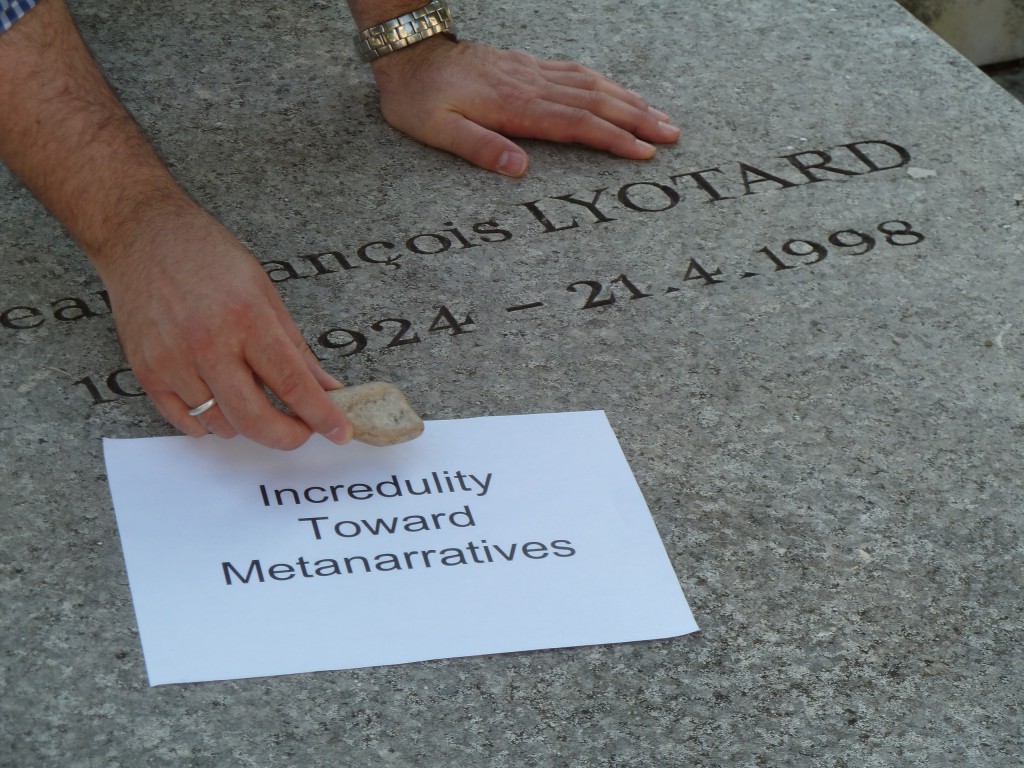Jacqlyn S. Triscari is presenting this session. Her answer to the session title is simply, no! The purpose of her qualitative research study is about the role of power and shifts in power that occur in an organization during an organizational transformation. How is the transformation process intertwined with shifts in power, and issues in and around power? She spoke about organizational change as the main framework, and then organizational development (OD, which is a policy and procedure way of managing change that comes from senior management) and organizational transformation (OT, which addresses issue of culture and people).
She addresses issues of critical reflection and altering values / assumptions / beliefs. She used a case study, which was a non-profit that provides services for people with developmental disabilities. With her case study, she interviewed senior management, documents monthly newsletters as DVDs where senior management spoke, interviews with workers, and focus groups.
Her theoretical framework was Critical Organizational Theory with a Postmodern Lens. She did a spin on mainstream organizational theory (Abel, 2005), which is generally around maintaining the status quo. She then added critical theory, specifically critical management studies and critical HRD (cf. Alvesson & Wilmott, 1992). Jacqlyn did a nice job explaining these critical organizational theories and how they merge into transformative theories. Critical Organizational Theory and its view of power assumes power from society spills over to organizations, diversity is seen broadly and includes many organizational factors, some people have more voice than others, and power is repressive and a negative entity. Postmodernism includes multiple views, perspectives, and voices that are encouraged, deconstruction is used as a teaching, learning, and questioning tool, context is crucial, no preferred ways of thinking, and solutions (even temporary ones) are sought. Needless to say, based on my blog’s subtitle, this is something I am really interested in. Postmodern organizational theory posits power that exists, though it is not good or evil, and this is based on the work of Foucault.
I asked a question about how deconstruction was done within the organizations; she will come back to this and respond later.
There is a lot of research on (planned) change (OD change), but less on organizational transformation with its issues of power.
She used a Spiral of Analysis (cf. Cepeda & Martin, 2005)—she did an analysis and then brought the findings to more people in the organization to test them out. This process reminds me of the PDSA (Plan – Do – Study – Act) cycle in the performance improvement literature.
One of the fundamental things that she learned from the workers within the organization—they followed what management told them to do (policies), unless they knew they were wrong. This was in part linked to the CEO’s initial tea and cookie session, when the CEO told the workers that sometimes you stand alone when you are right. The CEO gave a list of values, and asked the employees to accept the one(s) they thought were right and agreed with.
She was then asked at the end to reflect on what she learned and how she has changed (reminds me of my Lancaster paper I submitted last week and am now revising). One of the items is that maybe power does not follow organizational lines. There is more than one “reality” to any event. In this way, everybody can be right.
A person in the audience recommended a Sage text by Dvora Yanow – Conducting Interpretive Policy Analysis, that may be useful for this style of research.
 Leave it to Maha Bali in her Embracing Paradox: Both/And Mentality and Postmodernism to get me thinking about critical theory and how I find myself somehow free of it.
Leave it to Maha Bali in her Embracing Paradox: Both/And Mentality and Postmodernism to get me thinking about critical theory and how I find myself somehow free of it.